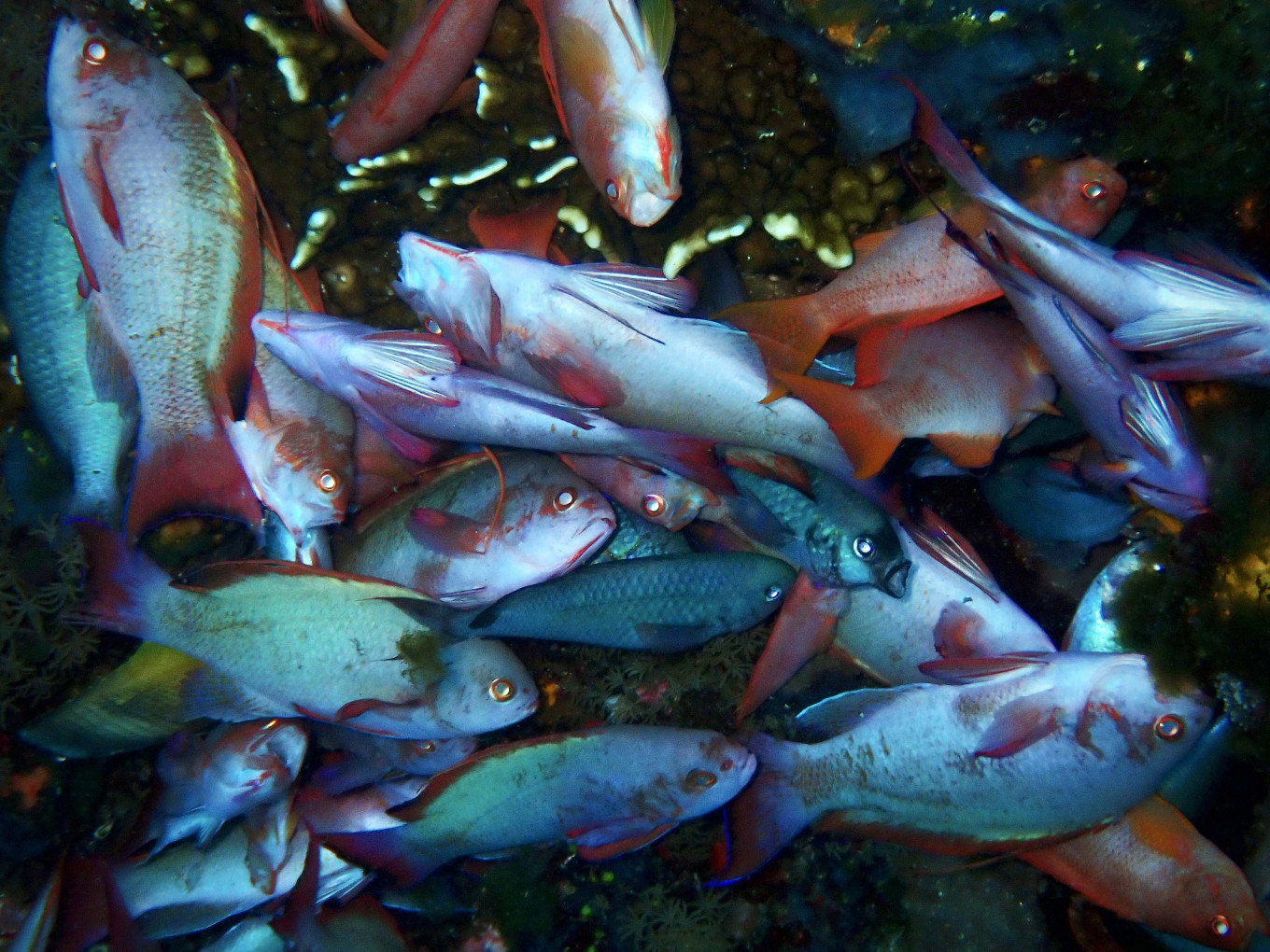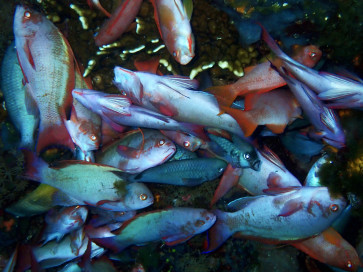Popular Reads
Top Results
Can't find what you're looking for?
View all search resultsPopular Reads
Top Results
Can't find what you're looking for?
View all search resultsBlast fishing: Desecrating coral reefs for a bigger catch
Change text size
Gift Premium Articles
to Anyone
Though illegal, the practice continues to run rampant in Indonesian waters.
The waters of Sumbawa, West Nusa Tenggara, appear pristine and unharmed, home to creatures and landforms that testify to Indonesia’s rich marine life. However, beneath the surface lies a truth that often goes untold: when the maritime police are far from sight, designated fishers row out to sea and bomb coral reefs.
Kaharudin, a shrimp farmer living in Bima, Sumbawa, explains that these bombs are used for an illegal practice known as blast fishing. When detonated, coral reefs are “completely wiped out”, transforming spirited utopias into wastelands of rubble and carcasses.
Michael Sjukrie is the founder of Odydive and an award-winning course director at PADI, the world’s leading scuba-diver-training organization. These coral reefs, he explains, are the habitats of most fish species targeted by blast fishers. Once destroyed, a plethora of fish are killed, while the remaining survivors escape and relocate to various locations, leaving the bombed areas with “absolutely no fish” left.
“Apart from the dead,” the 51-year-old adds.
As a result, villagers who once relied on these regions for food are forced to travel to and fish in other territories -- typically located farther away from shore -- to simply conjure a meal.
Kaharudin, along with the other residents of his village, Poja, are victims of such.



















